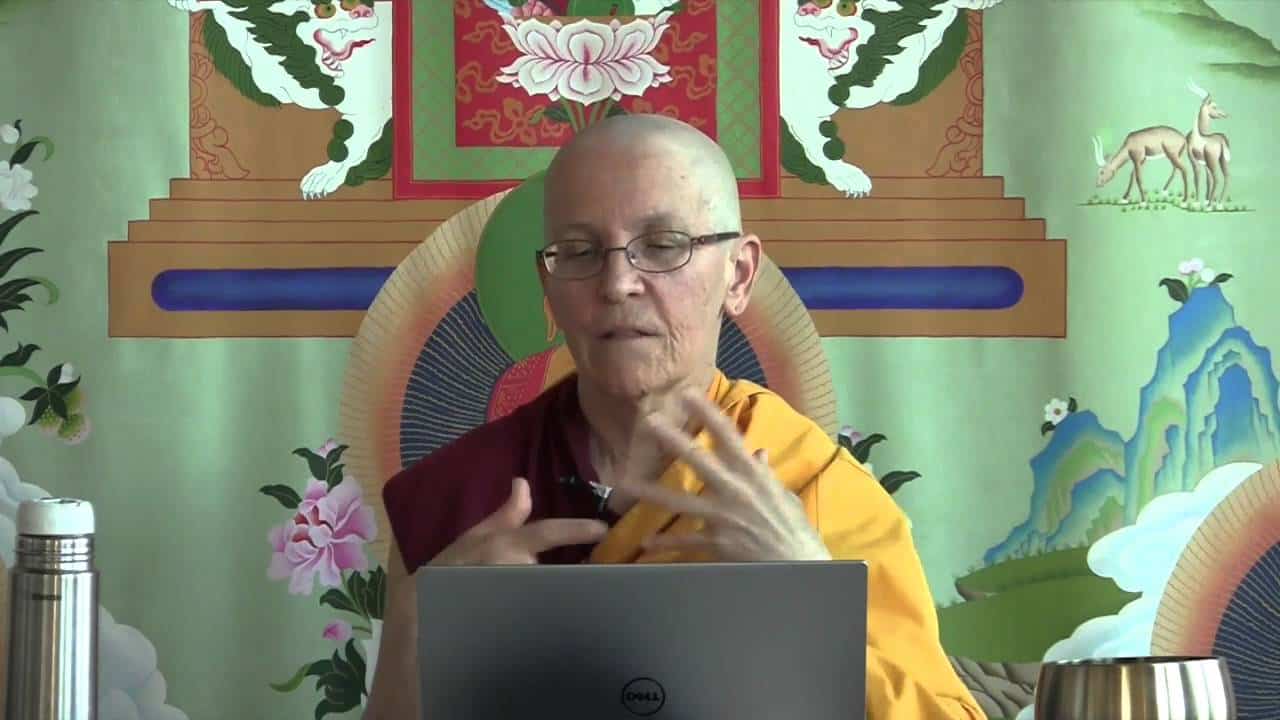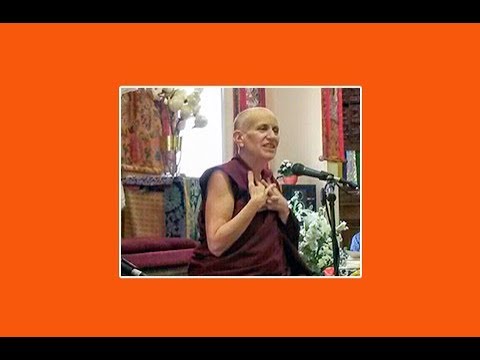Gomchen Lamrim review: Reliance on a spiritual mentor
Part of a series of teachings on the Gomchen Lamrim by Gomchen Ngawang Drakpa. Visit Gomchen Lamrim Study Guide for a full list of contemplation points for the series.
- What it means to properly rely on a spiritual mentor
- The different types of spiritual mentors
- How to establish a teacher-student relationship
- The ten qualities of a qualified spiritual mentor
- Guided meditation on the eight benefits of relying on a spiritual mentor
Gomchen Lamrim 36 Review: Reliance on a spiritual mentor (download)
Contemplation points
- What does it mean to receive the blessing of our spiritual mentor(s)? What part do we play in this process?
- What is the purpose of relying on a spiritual mentor?
- What are the six main outlines to relying on a spiritual mentor? Venerable Tsepal said knowing these allows us to take the teachings with us wherever we go…
- Consider the 10 qualities of a qualified spiritual mentor (being disciplined, being serene, being thoroughly pacified, having good qualities surpassing those of the student, being energetic, having a wealth of scriptural knowledge, possessing loving concern, possessing thorough knowledge of reality, having skill in instructing disciples, and having abandoned dispiritedness). How do these qualities benefit the teacher? How do they benefit the disciple?
- Contemplate each of the benefits of relying on a spiritual mentor that we did in the guided mediation. Determine to deeper your relationship with your spiritual mentor:
- We will become closer to attaining Buddhahood. Why is this true?
- It pleases the Buddhas. Why is this true?
- We will not be disturbed by maras or misleading friends. Why is this the case?
- We will naturally put a stop to all delusions and destructive actions. How has this been true in your own life?
- Insights, realizations, and meditative experiences will increase. Draw from your own experience how this is true or how it is true for Dharma friends or those you have observed.
- You will never lack spiritual guides in all future rebirths. Think about how actions towards teachers in this life affects our relationship with them in future lives.
- We will not fall to the lower realms. Reflect on why that might be the case.
- We will effortlessly achieve short and long term goals. Why is this?
- What conclusions can you draw from meditating on properly relying on a spiritual mentor?
- Venerable Tsepal said that our relationship with a spiritual mentor is very dynamic: sometimes we feel very connected and at other times distant. Assess your relationship with your spiritual mentor(s). What can you do to build and support that relationship from your side?
Venerable Tenzin Tsepal
Venerable Tenzin Tsepal was first introduced to meditation in high school in the 1970s. While working as a dental hygienist in Seattle and hospital administration in Yakima, she practiced and attended retreats in the Vipassana tradition. In 1995, she found Dharma Friendship Foundation and teachings with Venerable Thubten Chodron. She attended the Life As A Western Buddhist Nun conference in India as a lay volunteer in 1996. Following a life-changing 3-month Vajrasattva retreat in 1998, Ven. Tsepal lived in Dharmsala, India for two years where she further explored the idea of monastic life. She received novice ordination as a Buddhist nun with His Holiness the Dalai Lama in March of 2001. After ordination, she was immersed in the full-time residential Buddhist Studies Program at Chenrezig Institute in Queensland, Australia, principally with Khensur Rinpoche and Geshe Tashi Tsering. As a qualified FPMT teacher, Ven. Tsepal was appointed the Western Teacher at Chenrezig Institute from 2004 to 2014, teaching the Discovering Buddhism series, tutoring for the general program and leading retreats. In 2015, she tutored three subjects for the FPMT Basic Program. Venerable Tsepal arrived at Sravasti Abbey in mid-January for the 2016 Winter Retreat. She joined the community in September 2016, and received Shiksamana training that October.


